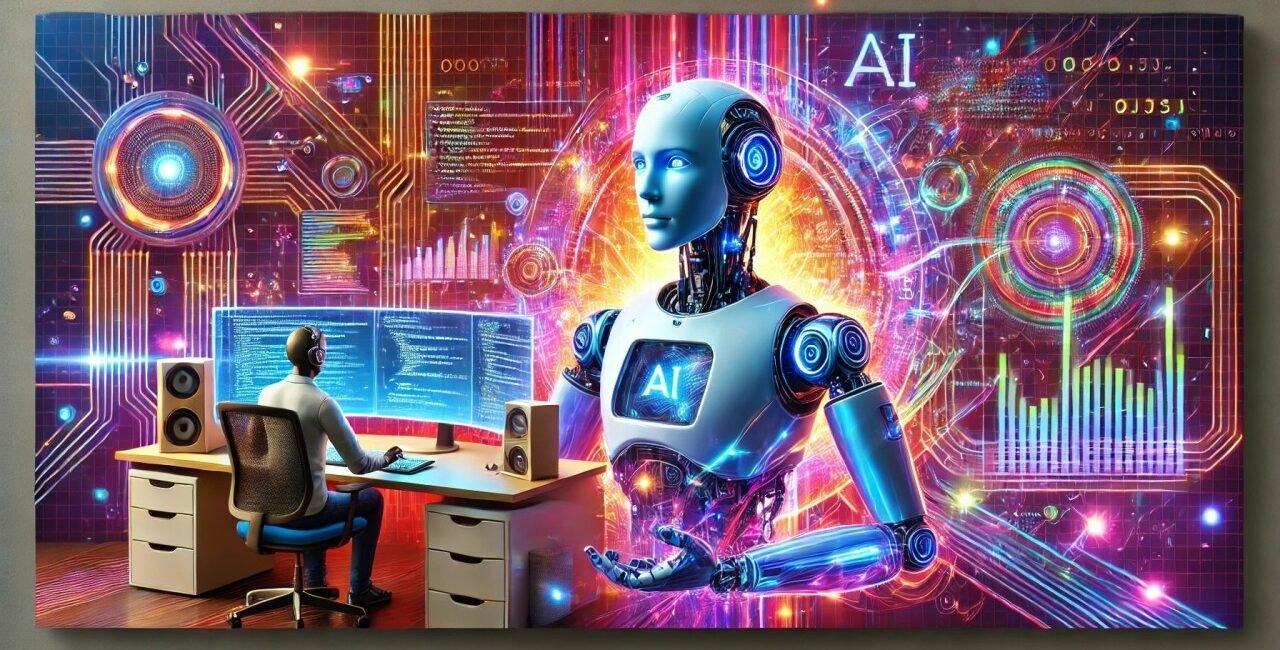
As the pace of technological change accelerates, developers are under constant pressure to build faster, more efficiently, and with fewer errors. By 2026, AI code generation software will no longer be a futuristic novelty—it will be a fundamental tool in every developer’s arsenal. From startups to tech giants, software teams are increasingly relying on intelligent code assistants to streamline development workflows, boost productivity, and even inspire innovation.
This article explores the driving forces behind this trend and explains why AI code generation software development is rapidly becoming indispensable.
1. The Rise of Intelligent Code Assistance
AI-powered code generation tools like GitHub Copilot, Amazon CodeWhisperer, and Tabnine are already transforming how developers write code. These tools leverage large language models trained on billions of lines of code to offer real-time code suggestions, complete functions, fix bugs, and even write entire modules.
By 2026, these tools will become significantly more advanced—offering context-aware support across languages, frameworks, and architectures. Developers will be able to focus more on problem-solving and architecture, while AI handles routine coding and syntax.
2. Boosting Productivity Without Compromising Quality
One of the most compelling benefits of AI code generation software is its ability to drastically reduce development time. Developers can now scaffold new features in minutes rather than hours. AI can:
-
Autocomplete boilerplate code
-
Generate API integrations
-
Translate logic across languages
-
Identify and correct common errors on the fly
This allows teams to release updates faster, meet deadlines more reliably, and reduce burnout. In fact, studies have shown that AI-assisted developers can be up to 55% more productive than those who work without AI tools.
3. Bridging the Skills Gap
The global shortage of skilled software developers has been a major bottleneck in tech-driven innovation. AI code generation tools offer a partial solution by enabling junior developers to perform tasks that previously required senior expertise.
With AI assistance, developers can:
-
Learn best practices through intelligent suggestions
-
Quickly understand legacy codebases
-
Explore new frameworks and languages with guided support
By 2026, these capabilities will become even more refined, effectively narrowing the skills gap and allowing organizations to scale faster without compromising code quality.
4. Enhancing Collaboration Across Teams
Modern development is increasingly collaborative. AI code generation tools are becoming collaborative assistants—helping distributed teams work together more efficiently. Integrated into IDEs and CI/CD pipelines, these tools can:
-
Standardize code style and documentation
-
Suggest improvements in real time
-
Reduce merge conflicts with smarter code prediction
As remote and hybrid work models become the norm, having an AI collaborator that keeps everyone aligned will be essential for smooth software delivery.
5. Accelerating Innovation and Experimentation
AI code generation is not just about speed—it’s about expanding what’s possible. Developers can now prototype new features or test novel ideas in hours, not days. This opens the door for rapid experimentation in product development, especially in fields like:
-
Web3 and blockchain
-
AI/ML model development
-
AR/VR applications
-
Embedded systems and IoT
By freeing developers from mundane tasks, AI encourages more time spent on creative problem-solving, experimentation, and breakthrough innovation.
6. Reducing Technical Debt and Enhancing Code Quality
Technical debt is a silent killer in many software projects. Over time, quick fixes and inconsistent code can slow development and increase maintenance costs. AI code generation tools help mitigate this by:
-
Enforcing coding standards
-
Auto-generating clean, maintainable code
-
Identifying potential issues before they become bugs
By 2026, we can expect AI to even refactor large codebases intelligently, transforming legacy software into modern, modular systems.
7. Customized AI Models for Enterprise Development
While general-purpose AI tools are powerful, enterprises will increasingly adopt custom AI code generation models tailored to their unique tech stack, industry, and compliance needs. These domain-specific models can:
-
Understand business-specific logic
-
Adhere to internal security and coding policies
-
Integrate with proprietary frameworks
This level of customization ensures that AI-driven development aligns with strategic goals and long-term scalability.
8. AI as a Learning Companion
Beyond productivity, AI code generation software is becoming a personalized learning engine. It can provide real-time explanations, suggest optimal solutions, and even offer alternatives based on performance, memory usage, or security considerations.
In 2026, developers—especially self-taught coders and bootcamp graduates—will rely on AI as a mentor that teaches best practices while accelerating real-world coding experience.
9. The Economics of AI-Driven Development
From a business perspective, the ROI of using AI code generation software is clear:
-
Reduced time to market
-
Lower development costs
-
Fewer bugs in production
-
Less reliance on expensive contractors
As companies realize these benefits, investment in AI-assisted development will be viewed not just as a productivity gain but as a strategic imperative.
10. Preparing for the AI-Augmented Future
To remain competitive in this evolving landscape, developers and organizations must:
-
Integrate AI code generation tools into their workflows
-
Train teams on prompt engineering and tool usage
-
Embrace continuous learning to keep up with AI advancements
The developers who thrive in 2026 will not be those who resist AI—but those who partner with it.
Conclusion: AI Code Generation Is the Developer’s Co-Pilot of the Future
AI code generation software development is not replacing developers—it’s amplifying them. By 2026, it will be a standard component in every serious developer’s toolkit, akin to Git, Docker, or VS Code. The shift is not optional—it’s inevitable.
In a world where speed, innovation, and quality are paramount, AI becomes the bridge between what developers can do and what they aspire to create. Those who embrace AI code generation now will not only build faster—they’ll build the future.

